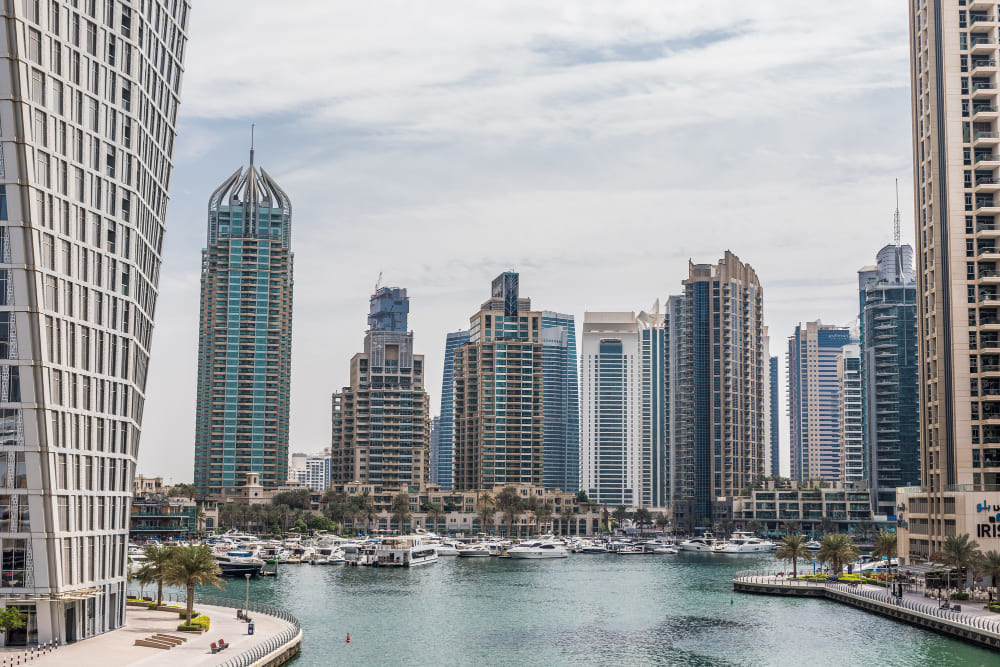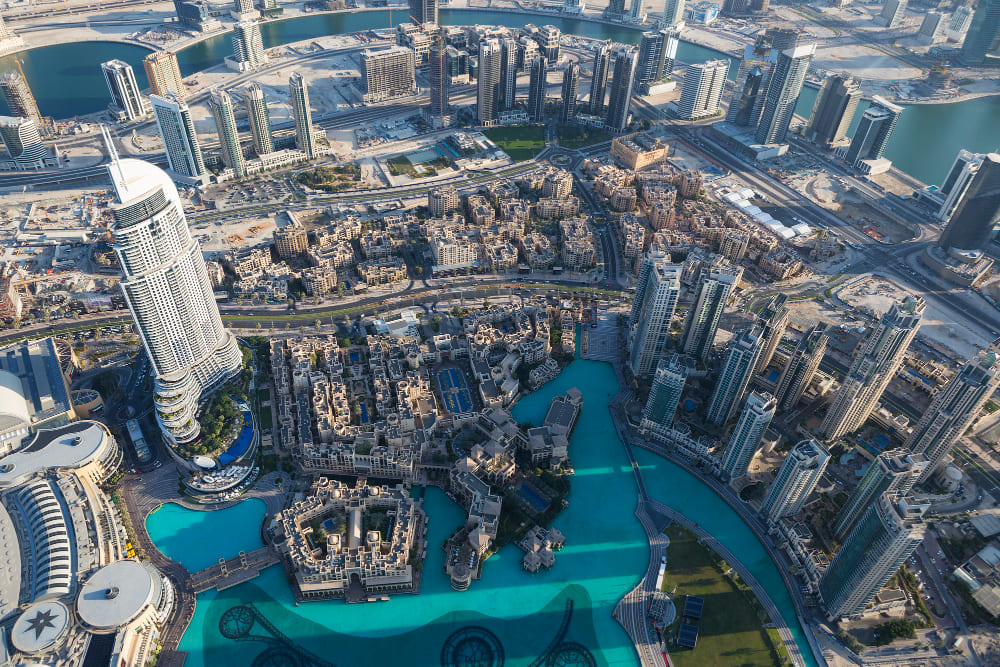Emaar Properties: A Pioneering Force in Global Real Estate Development
Emaar Properties, one of the largest and most influential real estate developers in the world, has played a pivotal role in transforming the skyline of Dubai and shaping its global identity. Founded in 1997 by Mohamed Alabbar, the company has become synonymous with luxury, innovation, and architectural grandeur. With high-profile projects like the Burj Khalifa and The Dubai Mall, Emaar’s reach extends beyond Dubai, with a growing international presence in markets such as North America, Europe, Africa, and Asia. As of August 2023, Emaar had a market valuation of US$16.8 billion, with total assets worth US$37.6 billion as of December 2022.

Early History and Formation
Emaar’s journey into mega-projects began with the announcement of Dubai Marina in 2001, one of the world’s largest man-made waterfront developments. In 2003, Emaar unveiled its ambitious Downtown Dubai project, which would later become the company’s crown jewel. Downtown Dubai includes the Burj Khalifa, the tallest structure in the world at 828 meters, and The Dubai Mall, the world’s second-largest mall by total area. These developments not only became global icons but also solidified Emaar’s position as a leader in urban development.
The Dubai Mall, which officially opened in 2008, features over 1,200 stores, 200 restaurants, and attractions like the Dubai Aquarium and Underwater Zoo, Reel Cinemas, and the Dubai Ice Rink. The mall attracted over 80 million visitors in 2014 alone, of which 40% were international tourists, making it one of the most visited retail destinations globally.
Global Expansion and Diversification
In 2004, Emaar launched Emaar International LLC, signaling its foray into international markets. The company began pursuing large-scale projects in various countries, including Egypt, India, Turkey, Saudi Arabia, and Morocco. Emaar’s international strategy focused on developing residential communities, commercial hubs, and hospitality assets to meet the rising demand for luxury and urban living across the world.
Emaar also diversified into other industries like hospitality and leisure. Emaar Hospitality Group was established to manage and operate a portfolio of hotels and resorts under brands such as The Address Hotels + Resorts and Vida Hotels and Resorts. The launch of The Address Boulevard in 2012, a 72-storey hotel in Downtown Dubai, added to the company’s portfolio of luxury offerings.
Public Offerings and Financial Milestones
Emaar’s financial success was further bolstered in 2014 when it listed its Emaar Malls Group on the Dubai Financial Market, generating one of the largest initial public offerings (IPO) in the Middle East since the 2008 financial crisis. Emaar Malls’ IPO was well received, with shares closing at 3.25 dirhams and 535 million shares traded. The company also saw significant gains in its second-quarter net profits in 2015, reflecting its strong business model, with over $11.4 billion in real estate investments.
Major Projects and Developments
Some of Emaar’s most notable projects include:
Burj Khalifa: Completed in 2010, the Burj Khalifa is not only the world’s tallest building but also a symbol of Dubai’s ambition and Emaar’s expertise. The tower includes residential units, office spaces, the luxurious Armani Hotel, and the observation deck At the Top, which is a key tourist attraction.
The Dubai Mall: Opened in 2008, this massive shopping and entertainment complex is home to over 1,200 retail outlets, 200 restaurants, and attractions like the Dubai Fountain and KidZania. The mall has been a cornerstone of Dubai’s retail tourism strategy, attracting millions of visitors annually.
Dubai Marina: One of the largest waterfront developments in the world, Dubai Marina is home to luxury high-rises, restaurants, shopping malls, and leisure facilities, making it a prime location for both tourists and residents.
Dubai Opera House: Situated in the Opera District of Downtown Dubai, this iconic venue is a multi-format performing arts center that hosts concerts, theater performances, operas, and ballets, contributing to Dubai’s cultural scene.
Challenges and Legal Issues
Despite its successes, Emaar has faced its share of challenges. The global financial crisis of 2008 impacted the real estate market in Dubai, causing delays in some of Emaar’s projects. In 2009, Emaar’s U.S.-based subsidiary, John Laing Homes, filed for Chapter 11 bankruptcy protection, reflecting the broader economic slowdown in the global property market.
Additionally, Emaar faced legal issues in 2010 when American businessman Lionel Lombard filed a lawsuit against Emaar and its Chairman Mohamed Alabbar, alleging wrongful imprisonment and torture in Dubai. The case was dismissed later that year, but it highlighted the difficulties that can arise in operating across various legal and cultural contexts.
Recent Developments and Future Plans
In 2020, amid the global pandemic, Emaar’s profits fell by 48%, reflecting the economic disruption caused by COVID-19. However, Emaar’s resilience in times of crisis has been a hallmark of its long-term success. Mohamed Alabbar stepped down as chairman in December 2020 but continues to oversee the company’s daily operations as managing director.
Emaar has ambitious plans for the future, including the construction of Dubai Creek Tower, which is slated to surpass Burj Khalifa in height upon completion. The tower is expected to be a new symbol of Dubai’s continued growth and ambition on the world stage. Additionally, Emaar is exploring the development of smart cities, integrating sustainability and technology into its real estate offerings.
Conclusion
Emaar Properties stands as a testament to Dubai’s transformation from a regional trading hub to a global metropolis. With its landmark developments, international expansion, and commitment to innovation, Emaar continues to be a driving force in shaping the future of urban development both in the UAE and globally. The company’s vision, exemplified by projects like Burj Khalifa and The Dubai Mall, has redefined what is possible in real estate, setting new standards for luxury, scale, and architectural excellence. As Emaar looks to the future, its role in global real estate is set to grow even further, continuing to push the boundaries of modern urban living.

